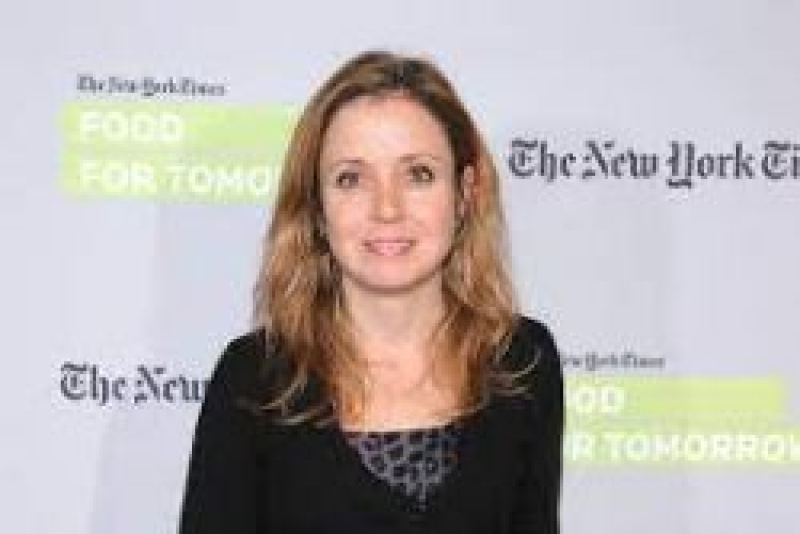- Irregularities, injustice will no longer be accepted in politics: Jamaat Ameer |
- 2 arrested in Jhenaidah for allegedly selling madrasa student |
- Koko’s wife campaigns for Tarique in Dhaka-17 |
- Bangladeshi Expats Cast 4.58 Lakh Postal Votes |
- IMF Forecasts Bangladesh GDP to Rebound to 4.7% in FY26 |
Blue Food Systems Are At A Tipping Point. Will We Make The Right Choices?

Danielle Nierenberg
Danielle Nierenberg
Over the past few years, Food Tank has been working to pay closer attention to blue foods—aquaculture, fisheries, aquatic plants, and seaweed.
For more than 3 billion people worldwide, blue foods are the foundation of vital nutrients and protein in their diets, and blue food systems provide livelihoods for about 800 million people around the world. Frankly, within the food movement, it's a topic that I don't think has been central enough to our discussions of food systems of the future.
And right now, blue food systems are at a crucial tipping point.
Within the world of blue foods, it's still very possible at this point to make sustainability the norm, rather than an 'alternative system.' It does not have to be too late.
But it's also plausible that, if we make the wrong choices, we could find ourselves in five or 10 years having the same sorts of conversations about blue foods that we’re having about reversing legacies of industrialized land-based agriculture.
Around the globe, an overwhelming majority of those employed in fisheries—about 9 in 10 people—work in small-scale fisheries, and those operations account for about 40 percent of the global catch. Meanwhile, blue food systems face many of the same dire environmental crises as other food production systems, including water temperatures and climate change, pollution and water quality, and habitat destruction.
Large-scale and industrial fishing operations are powerful, of course, but these numbers remind us that people have power! Far from being overwhelmed by the big guys, small-scale fishers are still very much in the game. Empowering diverse small-scale fishers, so they can feed the world responsibly, is absolutely central to a sustainable future for blue food systems.
Across the blue foods landscape, inspiring leaders are taking it upon themselves to cultivate the next generation—both of future blue food systems leaders and of the aquaculture that’ll feed us going forward.
The North American Marine Alliance (NAMA), led by Niaz Dorry, is a fisherperson-led alliance working toward economically empowered and fairly compensated fishers, vibrant and viable fishing communities, and a diversity of blue foods. The Lift All Boats Project, started by the company Luke’s Lobster, offers a student mentorship program to open up access to employment in Maine’s waterfront for those without traditional pathways.
As the founder of Minorities in Aquaculture, Imani Black is working to foster inclusivity in the aquaculture workforce and offer hands-on internships and apprenticeships.
“I want to create a network to show women of color that … you can take success into your own hands, step into that path, and it’s not only going to be great for you but also the community and aquaculture,” she says.
Just a few weeks ago, at our All Things Food and Environment Summit during Sundance, Chef Eric Gephart pointed out the amazing ways folks in the blue food system are blending traditional techniques with new sustainable technologies.
Wholechain is working to build more traceable and transparent supply chains, including in the seafood industry. Fed By Blue is a science-driven initiative dedicated to supporting innovative policies and using media to highlight responsibly sourced blue foods.
And in New York City, Oko Farms, founded and directed by Yemi Amu, is the city’s first outdoor and only publicly accessible aquaponics center. They aim to support food security and aquaculture awareness for urban residents and promote aquaponics as an ecological farming method.
As Yemi says, by putting aquaponics facilities in classrooms, backyards, rooftops, and more, aquaculture “can be done in a way where you’re utilizing space, you’re raising fish—which is a local protein source.”
The actions we take right now are make-or-break for all global blue food systems.
Preliminary data suggests things may be moving in the right direction, if we continue to push private and public sector leaders to do the right thing. Overfishing remains a serious concern, but in the United States, the status of fishery health appears to be improving somewhat. And just this week, the United Nations Food and Agriculture Organization (FAO) released the inaugural Guidelines for Sustainable Aquaculture, which aim to provide a comprehensive framework for developing and expanding fisheries in responsible, scientifically sound, and nourishing ways.
Around the world, every one of us can use our powerful role as citizen eaters in the blue food system! Be in touch at danielle@foodtank.com, and let’s discuss ways we can use our diets and dollars to support sustainable and small-scale fisheries that are doing blue food systems well from the outset.
(Danielle Nierenberg is the President of Food Tank and can be reached at danielle@foodtank.com)

